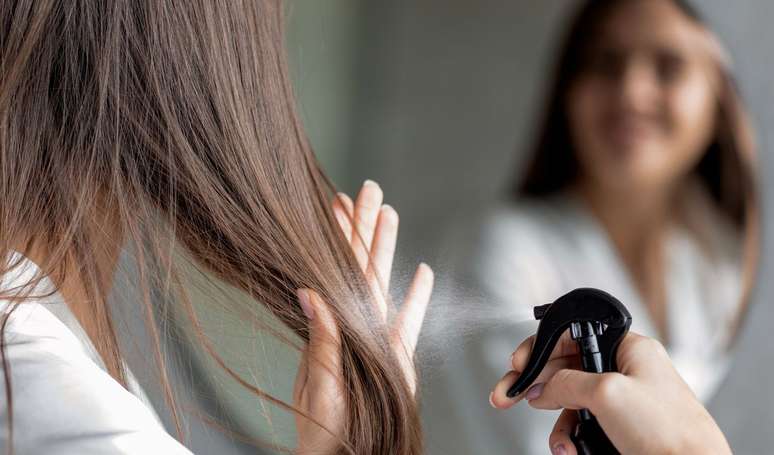The good results encourage therapists and family members, who report behavioral and developmental improvements in children
“He enters the room and the music therapist greets him. There is the place where the instruments and toys are. He chooses which type they will work with. If he chooses the instruments, they sing songs that make the sound of rain, waves of the sea. Asks for the toy playful, they play with finger puppets to stimulate conversation between animals. “
It is to talk about the results that the music therapy carried by his 6-year-old son, Paulo Roberto, whom Viviane Marques, resident of Passos (MG), describes in one of the girl’s therapy sessions. Paolo Roberto has it autism and had difficulty speaking. After six months of music therapy, he developed language, became less agitated and learned to socialize more.
According to the coordinator of the music therapy course at the Federal University of Goiás (UFG), Mayara Ribeiro, music therapy can help in the treatment of disorders such as autism in children, conditions such as Parkinson’s and Alzheimer’s and psychiatric diseases. According to her, the technique also helps in pain control and improves the response to other treatments, in addition to self-esteem.
Why do we feel emotional when we listen to music?
Experts say that in addition to the subjectivity of emotions and feelings, musical patterns also influence and influence areas of the brain related to memory and spatiality, for example.
According to Mayara, music accesses the limbic system of patients, awakening emotions, revisiting memories and creating feelings of pleasure. “It is a neurochemical process. Music is able to act on the sympathetic and parasympathetic nervous system and to reduce, for example, the feeling of anxiety. There are studies that indicate that music contributes to the production of oxytocin,” she adds.
Music therapy: also used in cancer, Alzheimer’s disease and other diseases
Katiane Santos, mother of Felipe Souza Santos, who is also autistic, says her son has experienced some improvement after attending music therapy sessions at the FMU clinic two years ago. At the age of 4, she doesn’t speak, but she began to look into each other’s eyes and to interact better with other children. “The first day I walked into the room, I saw that the music therapist started imitating Felipe to get his attention. Then, out of nowhere, he lay down on his lap. I couldn’t believe it, because until then, not even with my family. He did it, “he says.
My child has autism: where do I start asking for help?
Treatment is multidisciplinary and early intervention improves the quality of life
Mayara explains that the practice is effective for the treatment of various psychiatric diseases, since the songs provoke emotions and, through them, it is possible to access part of the patients’ subconscious. “It is possible to take the patient to traumatic places and memories and try to re-signify that moment.”
Learning with fun for children
One of the main resources of music therapy is to act in the treatment of children with autism And Down syndrome. The practice can also be performed on adults, but it shows more results on children in the learning phase. This is the case of Paulo Roberto, who today attends normal school, interacts and plays with other children.
“I was very happy with the treatment. We had already spent a year and a half on conventional therapies and there haven’t been many results,” says Viviane. Also autistic, 12-year-old Bruno Gomes de Lima has been attending music therapy sessions at the FMU clinic for four years. “He loves music, he likes to sing. He plays the guitar, plays the keyboard and calms down if he’s nervous. The day we don’t go, he misses him”, says his mother, Josefa Gomes.
With microcephaly and intellectual disability, Ana Clara da Silva, 12, has been doing music therapy for four years at the FMU clinic. Her mother, Erisvania Nascimento, reports improvements. “She pays more attention, she is developing her language than she is, she is able to concentrate on the game,” she says. “You like her very much.”
Despite the benefits reported by professionals and patients, Music therapy is not yet regulated as a profession in Brazil. “Many doctors believe in work and refer patients for treatment, and many health plans are already providing coverage,” she says.
Music therapy, along with other integrative practices (called PICs) – such as yoga, acupuncture and homeopathy – have been integrated into the Unified Health System (SUS) since 2006. The 2019 data from the Ministry of Health shows that the practices are offered in 17,335 services health in 4,297 municipalities in the country and in all the capitals. In the same year, a partial survey indicated that 25,815 people benefited from music therapy sessions through SUS. In Sao Paulo, the city hall website lists stations offering PIC service, by region: tinyurl.com/pics-sp.
How much does a music therapy session cost?
The price of a single session of music therapy it can range from R $ 150 to R $ 350. At the FMU teaching clinic in Sao Paulo, university students serve the population for a nominal fee of R $ 40.
According to Ana Maria, there is a queue for those interested in accessing care at the unit. “They are the trainee students they attend, followed weekly by a qualified teacher,” she explains. Ana Clara, Bruno and Felipe, who attend the clinic, did not take long to seek treatment. The maximum waiting time was three months.
+The best content in your email for free. Choose your favorite Earth Newsletter. Click here!
Source: Terra
Benjamin Smith is a fashion journalist and author at Gossipify, known for his coverage of the latest fashion trends and industry insights. He writes about clothing, shoes, accessories, and runway shows, providing in-depth analysis and unique perspectives. He’s respected for his ability to spot emerging designers and trends, and for providing practical fashion advice to readers.





![Everything starts here: What awaits you on Thursday 311 in the episode of July 3, 2025 [SPOILERS] Everything starts here: What awaits you on Thursday 311 in the episode of July 3, 2025 [SPOILERS]](https://fr.web.img6.acsta.net/img/67/73/6773c56ca8f13c3bbd91ca8e8c924f29.jpg)



